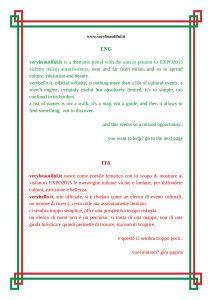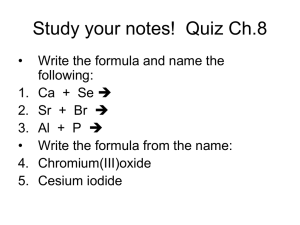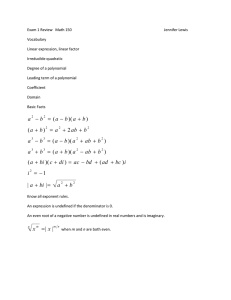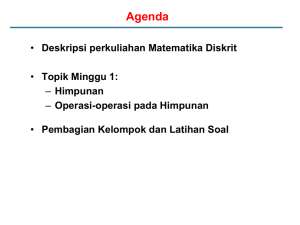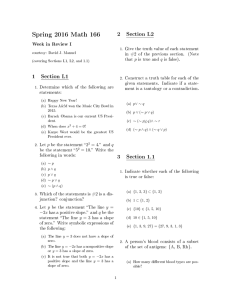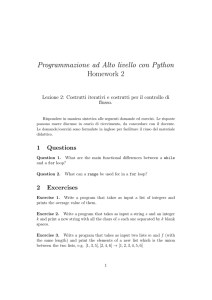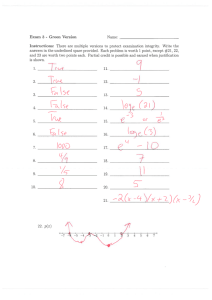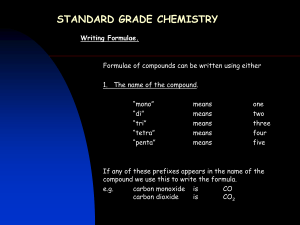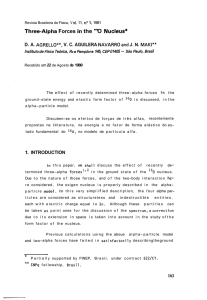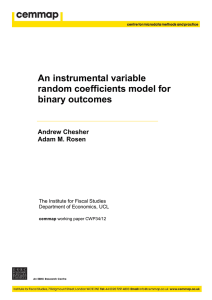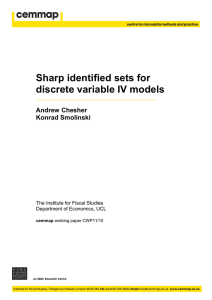MATHEMATICAL NOTATIONS 1. Logical remarks
advertisement
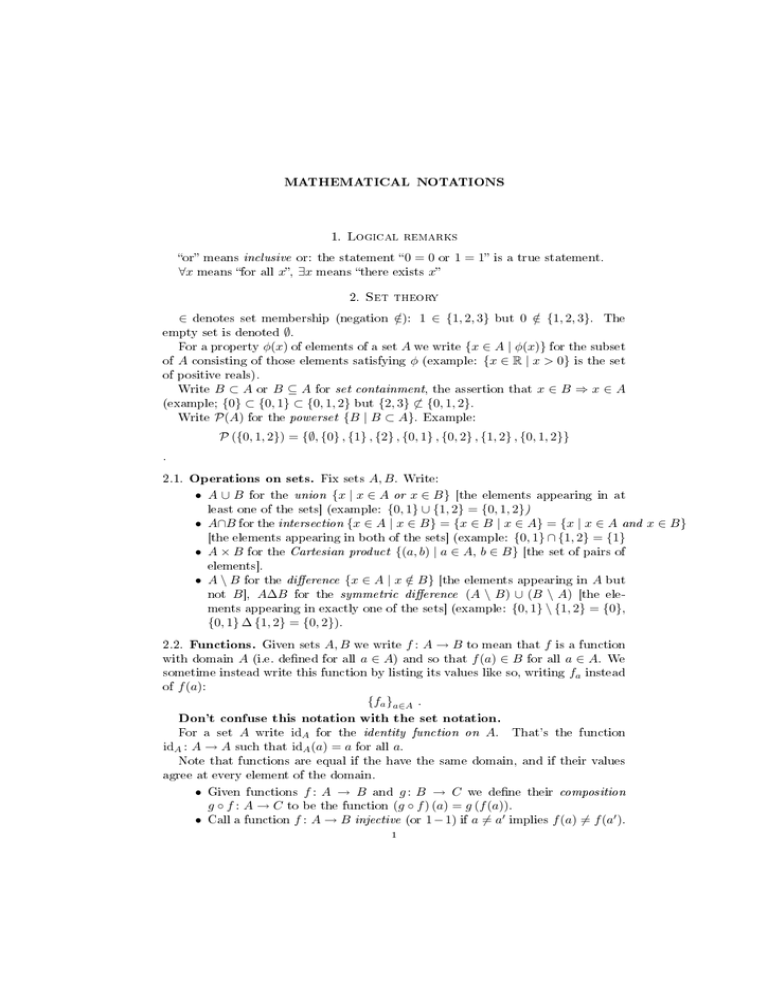
MATHEMATICAL NOTATIONS
1.
or means
∀x
inclusive
means for all
Logical remarks
or: the statement 0
x, ∃x
is a true statement.
Set theory
2.
∈
= 0 or 1 = 1
x
means there exists
∈
/ ): 1 ∈ {1, 2, 3} but 0 ∈
/ {1, 2, 3}. The
∅.
For a property φ(x) of elements of a set A we write {x ∈ A | φ(x)} for the subset
A consisting of those elements satisfying φ (example: {x ∈ R | x > 0} is the set
denotes set membership (negation
empty set is denoted
of
of positive reals).
Write
B ⊂ A or B ⊆ A for set containment, the assertion
{0} ⊂ {0, 1} ⊂ {0, 1, 2} but {2, 3} 6⊂ {0, 1, 2}.
P(A) for the powerset {B | B ⊂ A}. Example:
that
x∈B⇒x∈A
(example;
Write
P ({0, 1, 2}) = {∅, {0} , {1} , {2} , {0, 1} , {0, 2} , {1, 2} , {0, 1, 2}}
.
2.1.
Operations on sets. Fix sets
• A∪B
for the
A, B .
Write:
union {x | x ∈ A or x ∈ B}
[the elements appearing in at
{0, 1} ∪ {1, 2} = {0, 1, 2})
• A∩B for the intersection {x ∈ A | x ∈ B} = {x ∈ B | x ∈ A} = {x | x ∈ A and x ∈ B}
[the elements appearing in both of the sets] (example: {0, 1} ∩ {1, 2} = {1}
• A × B for the Cartesian product {(a, b) | a ∈ A, b ∈ B} [the set of pairs of
least one of the sets] (example:
elements]
.
• A \ B for the dierence {x ∈ A | x ∈
/ B} [the elements appearing in A but
not B ], A∆B for the symmetric dierence (A \ B) ∪ (B \ A) [the elements appearing in exactly one of the sets] (example: {0, 1} \ {1, 2} = {0},
{0, 1} ∆ {1, 2} = {0, 2}).
2.2.
Functions. Given sets
with domain
A
A, B
we write
f: A→B
a ∈ A)
and so that
(i.e. dened for all
to mean that
f (a) ∈ B
f
is a function
for all
sometime instead write this function by listing its values like so, writing
of
a ∈ A. We
fa instead
f (a):
{fa }a∈A .
Don't confuse this notation with the set notation.
For a set
idA : A → A
A
write
such that
idA for the identity
idA (a) = a for all a.
function on A.
That's the function
Note that functions are equal if the have the same domain, and if their values
agree at every element of the domain.
g : B → C we dene their composition
(g ◦ f ) (a) = g (f (a)).
• Call a function f : A → B injective (or 1 − 1) if a 6= a0 implies f (a) 6= f (a0 ).
•
Given functions
g◦f: A→C
f: A → B
and
to be the function
1
MATHEMATICAL NOTATIONS
•
•
Call a function (or onto) if for every
Call a fucntion
Exercise.
f
bijective
f: A→B
is bijective i there is
b∈B
2
there is
a∈A
so that
f (a) = b.
if it is injective and surjective.
g: B → A
so that
g ◦ f = idA
and
f ◦ g = idB .
Family set operations [will generally not appear in the course]. Fix
2.3.
{Ai }i∈I of sets (see function notation above) we write
S
• Ti∈I Ai for the union {x | ∃i ∈ I : x ∈ Ai }
• i∈I Ai for the intersection {x | ∀i ∈
Ai }
I : x ∈S
Q
• i∈I Ai for the Cartesian product f : I → i∈I Ai | ∀i ∈ I : f (i) ∈ Ai .
a family
3.
Linear algebra
Summation notation. Let
3.1.
V
P0
V . We set inductively: i=1 v i = 0 (the empty
Pn+1 def Pn
that
i=1 v i = (
i=1 v i ) + v n+1 . In other words:
ments of
after
be a vector space,
0
X
i=1
•
v i = 0,
1
X
vi = v1 ,
i=1
2
X
i=1
vi = v1 + v2 ,
3
X
N
{vi }i=1
a sequence of ele-
sum is by denition zero)
v i = (v 1 + v 2 ) + v 3 , . . .
i=1
Note that the value of the empty sum depends on the vector space under
consideration!
